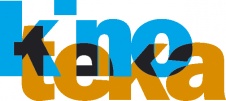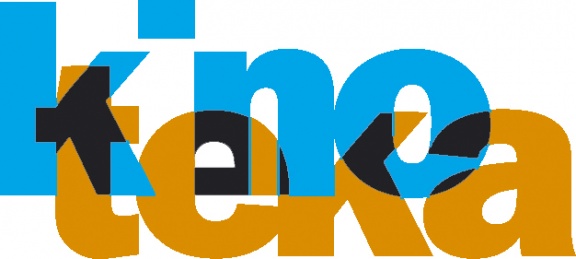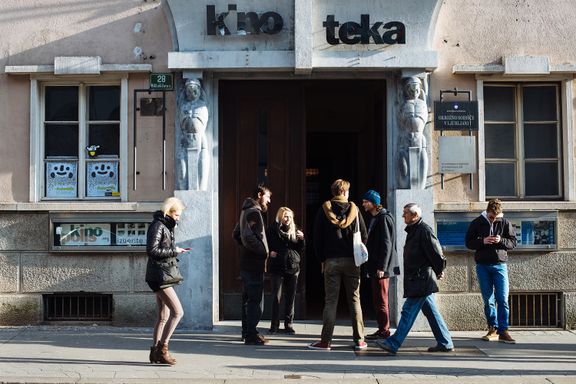Difference between revisions of "Slovenian Cinematheque"
(English proofreading 1; PROOFREAD DONE) |
(frtk!) |
||
| Line 1: | Line 1: | ||
{{Article | {{Article | ||
| − | | status = | + | | status = |
| maintainer = Denis Valič | | maintainer = Denis Valič | ||
}} | }} | ||
| Line 15: | Line 15: | ||
| fax = 386 (0) 1 434 2516 | | fax = 386 (0) 1 434 2516 | ||
| founded by = Ministry of Culture | | founded by = Ministry of Culture | ||
| − | |||
| contacts = {{Contact | | contacts = {{Contact | ||
| name = Ivan Nedoh | | name = Ivan Nedoh | ||
| Line 23: | Line 22: | ||
| website = | | website = | ||
| email = ivan.nedoh@kinoteka.si | | email = ivan.nedoh@kinoteka.si | ||
| − | |||
| − | |||
| − | |||
| − | |||
| − | |||
| − | |||
| − | |||
| − | |||
| − | |||
| − | |||
| telephone = | | telephone = | ||
| fax = | | fax = | ||
}} | }} | ||
}} | }} | ||
| − | |||
| − | |||
{{Teaser| | {{Teaser| | ||
| − | Established in [[Established::1996]] the [[Slovenian Cinematheque]] is one of the youngest | + | Established in [[Established::1996]] the [[Slovenian Cinematheque]] is one of the youngest public institutions of national importance in the field of culture. Its main tasks are to form, maintain, and present its collection of world film; to prepare regular programming and retrospectives in its hall; to exhibit artefacts which are important for the history of film and cinema; and to carry out research and publishing activity in the history of cinema. The Slovenian Cinematheque has its hall on Miklošičeva 28 and it publishes the monthly bulletin ''[[Kinotečnik]]''. |
}} | }} | ||
==Background== | ==Background== | ||
| − | The [[Slovenian Cinematheque]] was founded by decree of the Government of the Republic of Slovenia which introduced the separation of the Film Museum from the National Theatre Museum of Slovenia (previously joined in one institution: the National Theatre and Film Museum of Slovenia) and the merging of it with the Cinematheque Hall (in the former Yugoslavia it was a branch of the Yugoslav Cinematheque from Belgrade from where it also got its programming). The founder and first director of the Slovenian Cinematheque was [[Silvan Furlan]] (1953–2005); an essayist and author of numerous film studies and books as well as the most avid promoter of the film industry in Slovenia, who succeeded to gather around him a team of young film professionals who fostered film presentation, preservation, education, creation, and reflection under the roof of Slovenian Cinematheque. The newly formed institution divided its activities into four departments: the Programme Department, the Museum Department, the Film Archive Department and the Research and Publishing Department with a specialised library (the latter department was later abolished, only the library is still working). | + | The [[Slovenian Cinematheque]] was founded by decree of the Government of the Republic of Slovenia which introduced the separation of the Film Museum from the [[National Theatre Museum of Slovenia]] (previously joined in one institution: the National Theatre and Film Museum of Slovenia) and the merging of it with the Cinematheque Hall (in the former Yugoslavia it was a branch of the Yugoslav Cinematheque from Belgrade from where it also got its programming). The founder and first director of the Slovenian Cinematheque was [[Silvan Furlan]] (1953–2005); an essayist and author of numerous film studies and books as well as the most avid promoter of the film industry in Slovenia, who succeeded to gather around him a team of young film professionals who fostered film presentation, preservation, education, creation, and reflection under the roof of Slovenian Cinematheque. The newly formed institution divided its activities into four departments: the [[Slovenian Cinematheque Programme Department|Programme Department]], the [[Slovenian Cinematheque Museum Department|Museum Department]], the [[Slovenian Cinematheque Film Archive Department|Film Archive Department]] and the Research and Publishing Department with a [[Slovenian Cinematheque Library|specialised library]] (the latter department was later abolished, only the [[Slovenian Cinematheque Library|library]] is still working). |
==Locations== | ==Locations== | ||
| − | The Slovenian Cinematheque Programme Department is located next to the recently-renovated Cinematheque Hall (completely renovated in 2006 and named after [[Silvan Furlan]] in 2010) at Miklošičeva 28, which has 126 seats (2 of them are for people with disabilities) and where it screens its programme from Monday to Saturday. The Museum Department is situated at Miklošičeva 38, where most of its collections (photographs, posters, scripts and screenplays, manuscripts, leaflets) are held. The offices of the Film Archive Department and the small part of its repositories are located at Metelkova 2a, while its main archive is in Gotenica (in an ex-army underground facility). The Library and the administration offices are also situated at Metelkova 2a. | + | The Slovenian Cinematheque Programme Department is located next to the recently-renovated Cinematheque Hall (completely renovated in 2006 and named after [[Silvan Furlan]] in 2010) at Miklošičeva 28, which has 126 seats (2 of them are for people with disabilities) and where it screens its programme from Monday to Saturday. The [[Slovenian Cinematheque Museum Department|Museum Department]] is situated at Miklošičeva 38, where most of its collections (photographs, posters, scripts and screenplays, manuscripts, leaflets) are held. The offices of the [[Slovenian Cinematheque Film Archive Department|Film Archive Department]] and the small part of its repositories are located at Metelkova 2a, while its main archive is in Gotenica (in an ex-army underground facility). The [[Slovenian Cinematheque Library|Library]] and the administration offices are also situated at Metelkova 2a. |
| − | |||
==Programme== | ==Programme== | ||
| Line 58: | Line 44: | ||
The principal official tasks of the Slovenian Cinematheque are to set up and preserve a library collection of international films, including the corresponding technology for showing, preserving and processing film copies; to present a programme in its cinema hall based on its own resources and those of related international institutions; to collect, preserve, classify, catalogue and present museum materials relating to the history of film; to establish and maintain contacts with international organisations and associations; and to carry out research and publishing activities related to its basic areas of operation. It is funded from the national budget, and by donors and sponsors. | The principal official tasks of the Slovenian Cinematheque are to set up and preserve a library collection of international films, including the corresponding technology for showing, preserving and processing film copies; to present a programme in its cinema hall based on its own resources and those of related international institutions; to collect, preserve, classify, catalogue and present museum materials relating to the history of film; to establish and maintain contacts with international organisations and associations; and to carry out research and publishing activities related to its basic areas of operation. It is funded from the national budget, and by donors and sponsors. | ||
| − | Efforts to establish a collection of works which are fundamental to the history of world cinema are ongoing; up to now the Slovenian Cinematheque has managed to collect more than 3,500 titles, mainly from the last two decades, but it still has to complete its longer-term project to build a collection of film classics. The most precious prints in the Cinematheque's collection are undoubtedly its three greatest discoveries – the only surviving original print of Ernst Lubitsch's first film ''Als ich tot war'' [When I Was Dead] (1916), an original print of Franz Hofer's first film ''Des | + | Efforts to establish a collection of works which are fundamental to the history of world cinema are ongoing; up to now the Slovenian Cinematheque has managed to collect more than 3,500 titles, mainly from the last two decades, but it still has to complete its longer-term project to build a collection of film classics. The most precious prints in the Cinematheque's collection are undoubtedly its three greatest discoveries – the only surviving original print of Ernst Lubitsch's first film ''Als ich tot war'' [When I Was Dead] (1916), an original print of Franz Hofer's first film ''Des Alters erste Spuren'' [The First Signs of Getting Old] (1913) and the only remaining original colour print of the short film ''Le jongleur'' [The Minstrel] (Pathé, 1913). |
| − | |||
==International cooperation== | ==International cooperation== | ||
| Line 82: | Line 67: | ||
[[Category:Film venues]] | [[Category:Film venues]] | ||
[[Category:Cinemas]] | [[Category:Cinemas]] | ||
| + | |||
| + | [[Category:Publishers]] | ||
Revision as of 21:01, 26 July 2011

-
to
1 Dec 2021
31 Dec 2021
Slovenian Film Retrospective, a selection of classic Slovenian films, prepared by Slovenian Film Centre and Slovenian Cinematheque in cooperation with the Royal Belgian Film Archive in Brussels, in the context of the Slovenian Presidency of the EU, supported by the Slovenian Ministry of Culture
-
to
19 Oct 2018
25 Oct 2018
The first USA retrospective of films by Karpo Godina, with appearance of the author, organised by Jurij Meden (Slovenian Cinematheque), coinciding with the exhibition Toward a Concrete Utopia: Architecture in Yugoslavia, 1948–1980, supported by the Embassy of the Republic of Slovenia Washington,
-
30 May 2018
Austria Vienna ARCC.art Gallery
The panel discussion On News at the closing of the exhibition The News Belongs to Us by Nika Autor, featuring speakers Zdenka Badovinac (Moderna galerija / Museum of Modern Art, Ljubljana plus Museum of Contemporary Art Metelkova), Ciril Oberstar (ZRC Publishing, Dialogi Journal, Ekran, Magazine for Film and Television), and Andrej Šprah (Slovenian Cinematheque, Academy of Theatre, Radio, Film and Television (AGRFT)), moderated by the exhibition's curator Andreja Hribernik, supported by the Slovenian Culture and Information Centre, Vienna (SKICA) (Embassy of the Republic of Slovenia Vienna),
-
to
5 Nov 2015
6 Nov 2015
Metka Dariš (Slovenian Cinematheque), Barbara Borčić (SCCA-Ljubljana Centre for Contemporary Arts) present the Slovenian Cinematheque and the DIVA Station, respectively, at the international symposium Museums of Film / Film in the Museum
-
to
16 Sep 2015
18 Sep 2015
Screening of a number of short films by director Karpo Godina, and short films on the life and work of Jože Plečnik, organised in cooperation with the Slovenian Cinematheque and the Slovene Film Archives, and supported by the Embassy of the Republic of Slovenia Budapest,
-
20 May 2015
Slovenian 8mm Experiments: Karpo Godina and Davorin Marc, a screening and presentation of selected films from the Slovenian Cinematheque by Jurij Meden, supported by the Embassy of the Republic of Slovenia Washington,
-
30 Mar 2015
Slovenian 8mm Experiments: Karpo Godina and Davorin Marc, a screening and presentation of selected films from the Slovenian Cinematheque by Jurij Meden, supported by the Embassy of the Republic of Slovenia Washington,
-
11 Mar 2015
Slovenian 8mm Experiments: Karpo Godina and Davorin Marc, a screening and presentation of selected films from the Slovenian Cinematheque by Jurij Meden, supported by the Embassy of the Republic of Slovenia Washington,
-
6 Mar 2015
Slovenian 8mm Experiments: Karpo Godina and Davorin Marc, a screening and presentation of selected films from the Slovenian Cinematheque by Jurij Meden, supported by the Embassy of the Republic of Slovenia Washington,
-
6 May 2014
Screening of Karl Marx among us (2013) by Jurij Meden in the framework of the discussion on Yugoslav and Slovene cinematography since the 60s Confrontations in Relentlessness, next to Meden participating also Andrej Šprah, Ciril Oberstar and Nika Autor supported by Slovenian Cinematheque and the Embassy of the Republic of Slovenia Paris. Related to Nika Autor. Newsreel – The News Is Ours Satellite Programme 7 curated by Nataša Petrešin-Bachelez
-
to
6 Nov 2013
20 Dec 2013
A retrospective of František Čáp's work including films Vesna and Ne čakaj na maj, co-organised by the Slovenian Cinematheque and supported by the Embassy of the Republic of Slovenia Prague,
-
7 May 2013
Screenings of 3 recently restored early works by Karpo Godina, shot on Super 8, presented by Jurij Meden from the Slovenian Cinematheque, in the Archives Section,
-
to
4 Feb 2013
8 Feb 2013
Come to the cinema! Slovene film poster, an exhibition by Metka Dariš (Slovenian Cinematheque) at the Days of Slovene Culture Zagreb
-
2 Jun 2012
A presentation of the book Filmography of Slovenian Animated Film 1952-2012 edited by Igor Prassel and published by the Slovenian Cinematheque
at the Animafest Zagreb
Background
The Slovenian Cinematheque was founded by decree of the Government of the Republic of Slovenia which introduced the separation of the Film Museum from the National Theatre Museum of Slovenia (previously joined in one institution: the National Theatre and Film Museum of Slovenia) and the merging of it with the Cinematheque Hall (in the former Yugoslavia it was a branch of the Yugoslav Cinematheque from Belgrade from where it also got its programming). The founder and first director of the Slovenian Cinematheque was Silvan Furlan (1953–2005); an essayist and author of numerous film studies and books as well as the most avid promoter of the film industry in Slovenia, who succeeded to gather around him a team of young film professionals who fostered film presentation, preservation, education, creation, and reflection under the roof of Slovenian Cinematheque. The newly formed institution divided its activities into four departments: the Programme Department, the Museum Department, the Film Archive Department and the Research and Publishing Department with a specialised library (the latter department was later abolished, only the library is still working).
Locations
The Slovenian Cinematheque Programme Department is located next to the recently-renovated Cinematheque Hall (completely renovated in 2006 and named after Silvan Furlan in 2010) at Miklošičeva 28, which has 126 seats (2 of them are for people with disabilities) and where it screens its programme from Monday to Saturday. The Museum Department is situated at Miklošičeva 38, where most of its collections (photographs, posters, scripts and screenplays, manuscripts, leaflets) are held. The offices of the Film Archive Department and the small part of its repositories are located at Metelkova 2a, while its main archive is in Gotenica (in an ex-army underground facility). The Library and the administration offices are also situated at Metelkova 2a.
Programme
The principal official tasks of the Slovenian Cinematheque are to set up and preserve a library collection of international films, including the corresponding technology for showing, preserving and processing film copies; to present a programme in its cinema hall based on its own resources and those of related international institutions; to collect, preserve, classify, catalogue and present museum materials relating to the history of film; to establish and maintain contacts with international organisations and associations; and to carry out research and publishing activities related to its basic areas of operation. It is funded from the national budget, and by donors and sponsors.
Efforts to establish a collection of works which are fundamental to the history of world cinema are ongoing; up to now the Slovenian Cinematheque has managed to collect more than 3,500 titles, mainly from the last two decades, but it still has to complete its longer-term project to build a collection of film classics. The most precious prints in the Cinematheque's collection are undoubtedly its three greatest discoveries – the only surviving original print of Ernst Lubitsch's first film Als ich tot war [When I Was Dead] (1916), an original print of Franz Hofer's first film Des Alters erste Spuren [The First Signs of Getting Old] (1913) and the only remaining original colour print of the short film Le jongleur [The Minstrel] (Pathé, 1913).
International cooperation
The Slovenian Cinematheque is a member of the International Federation of Film Archives (FIAF) and the Association des Cinematheques Européennes (ACE). It also regularly collaborates with foreign embassies and cultural centres in Slovenia.
See also
- Slovenian Cinematheque Film Archive Department
- Slovenian Cinematheque Museum Department
- Slovenian Cinematheque Programme Department
- Slovenian Cinematheque Library
- EKRAN, Magazine for Film and Television
- Kinotečnik
External links
- Kinoteka website (in Slovenian)
- Kinoteka on ACE site




